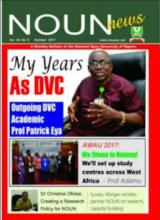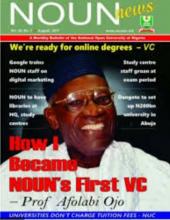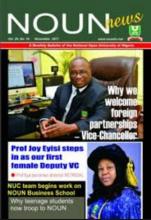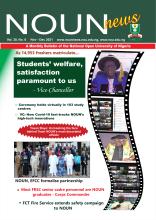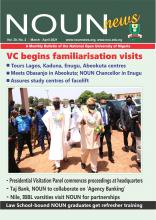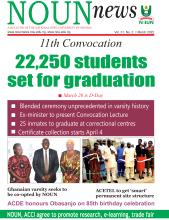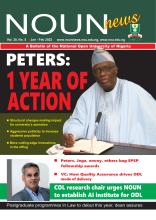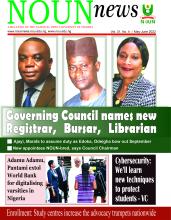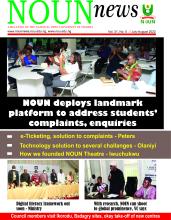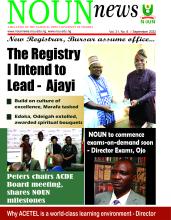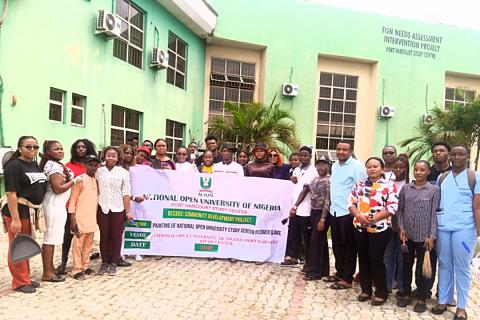
Students of DES 303, Community Development Service, a 300-Level and above course of the National Open University of Nigeria (NOUN), have given a facelift to the Port Harcourt Study Centre of the university.
NOUN News correspondent in Port Harcourt observed on Tuesday, July 22, 2025, that the centre was a beehive of activities as people were seen repainting walkways, flower hedge pavements and fences.
As the whole of the compound was literally transformed within a short time, our correspondent approached Mrs. Atamunonengiya Wohuruche and Mr. Bright Iwu, both of them desk officers of the course, for a chat.
“The people you see working here are all students of the university carrying out their Community Service on the Course DES 303, Community Development Service.
“The course is a compulsory zero credit hour course meant for all students of NOUN at 300 Level and above,” Wohuruche said.
“The course focuses on educating and sensitising members of the public, especially young people in secondary schools, on the ills of cultism, drug addiction and illicit sex as well as doing something to develop the community.
“It is a way of encouraging students of this university to give back to the society. Some sets of students under this programme visit secondary schools and colleges to give pep talks on sex education, anti-cultism and drug addiction.
“Some of them in the Faculty of Health Sciences have carried out free health checks for members of the public,” she added.
Wohuruche said there was another set of students that chose to carry out their Community Development Service by cleaning all the 35 toilets at the centre and putting them in good shape, addng that this was a very welcome development especially as there are only two cleaners at the centre.
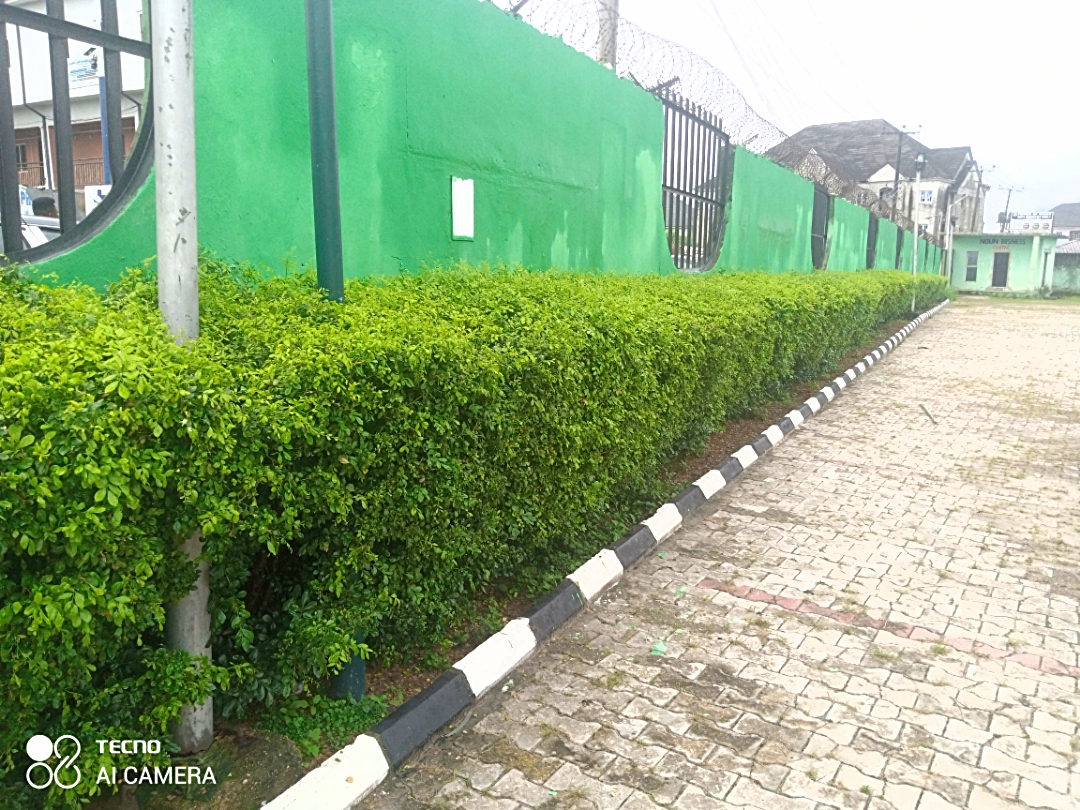
On whether there were measures put in place to enforce compliance by all students, Iwu said that there was no need to enforce compliance since the course is a compulsory course.
“You don’t have to force anybody to comply. The course is a compulsory course. If you don’t participate, you can’t graduate. Any student who desires to graduate must, therefore, participate,” she said.
One participant, Abdulrahim Sadiq, a student of Peace Studies and Conflict Resolution, revealed that his own group has carried out empowerment programmes for children in orphanage homes.
He said that they empowered the orphans by teaching them to produce liquid soap, insecticide, air freshener, bleach and other household items.
Sadiq added that his group has also carried out environmental cleaning of market places.
A student of Broadcast Journalism, Charity Eke, said that the course is very practical and worthwhile, stressing that it was a great thing to see students turn out en masse to beautify the campus.
Mabel Akata, a student of Mass Communication, said that her group carried out its Community Development Service at secondary schools where students were sensitised on the Impact of Social Media in Controlling Social Vices Among Young Adults.
She said that while on the programme, she observed that most of the pupils were disorientated because some were hawkers who had to be on the streets most of the time to “win bread” for the households they serve.
“Some of them were sleeping while we engaged them. When they were asked the reason they were sleeping, they said that they wake up as early 4.00 a.m every day to carry out chores before they come school,” she said, wishing that there were ways the government could stop the malaise of child labour.
Akata’s course mate, Prince Fubara, opined that DES 303 is a very creative programme that has exposed students to the reality of social vices in the society and what could be done to ameliorate their effects.
He, however, suggested that the central coordinator of the programme at the headquarters should be more accessible in order to provide more vivid direction, regarding the course, to students.
- Log in to post comments
- 231 views

